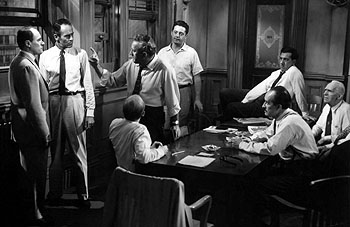 You’ve heard of jury nullification, but how about jury rebellion? Apparently it’s the latest thing. Here’s what happened during a recent trial to settle a suit for emotional distress brought by a sheriff’s deputy:
You’ve heard of jury nullification, but how about jury rebellion? Apparently it’s the latest thing. Here’s what happened during a recent trial to settle a suit for emotional distress brought by a sheriff’s deputy:
[Tony] Prados, an ex-Marine, leaned forward in the jury box and asked in a let-me-get-this-straight tone of voice: “He’s brave enough to go out and get shot at by anyone but he couldn’t handle this?” he said of the locker-room taunting. Fellow jury candidate Robert Avanesian, who had also unsuccessfully sought dismissal on financial hardship grounds, chimed in: “I think severe emotional distress is what is happening in Haiti. I don’t think you could have such severe emotional distress from that,” he said of the allegations in the deputy’s case.
The spontaneous outbursts of the reluctant jurors just as Los Angeles County Superior Court Judge James R. Dunn was about to swear them in emboldened others in the jury pool to express disdain for the case and concerns about their ability to be fair, and to ratchet up the pathos in their claims of facing economic ruin if forced to sit for the three-week trial.
In this time of double-digit unemployment and shrinking benefits for those who do have jobs, courts are finding it more difficult to seat juries for trials running more than a day or two. And in extreme cases, reluctance has escalated into rebellion, experts say.
After three days of mounting insurrection, lawyers for both the deputy and the sergeant waived their right to a jury trial and left the verdict up to Dunn.
In fairness, the story presents virtually no actual evidence that this kind of behavior has increased lately. But we’ve all probably imagined doing something like this, haven’t we?

















